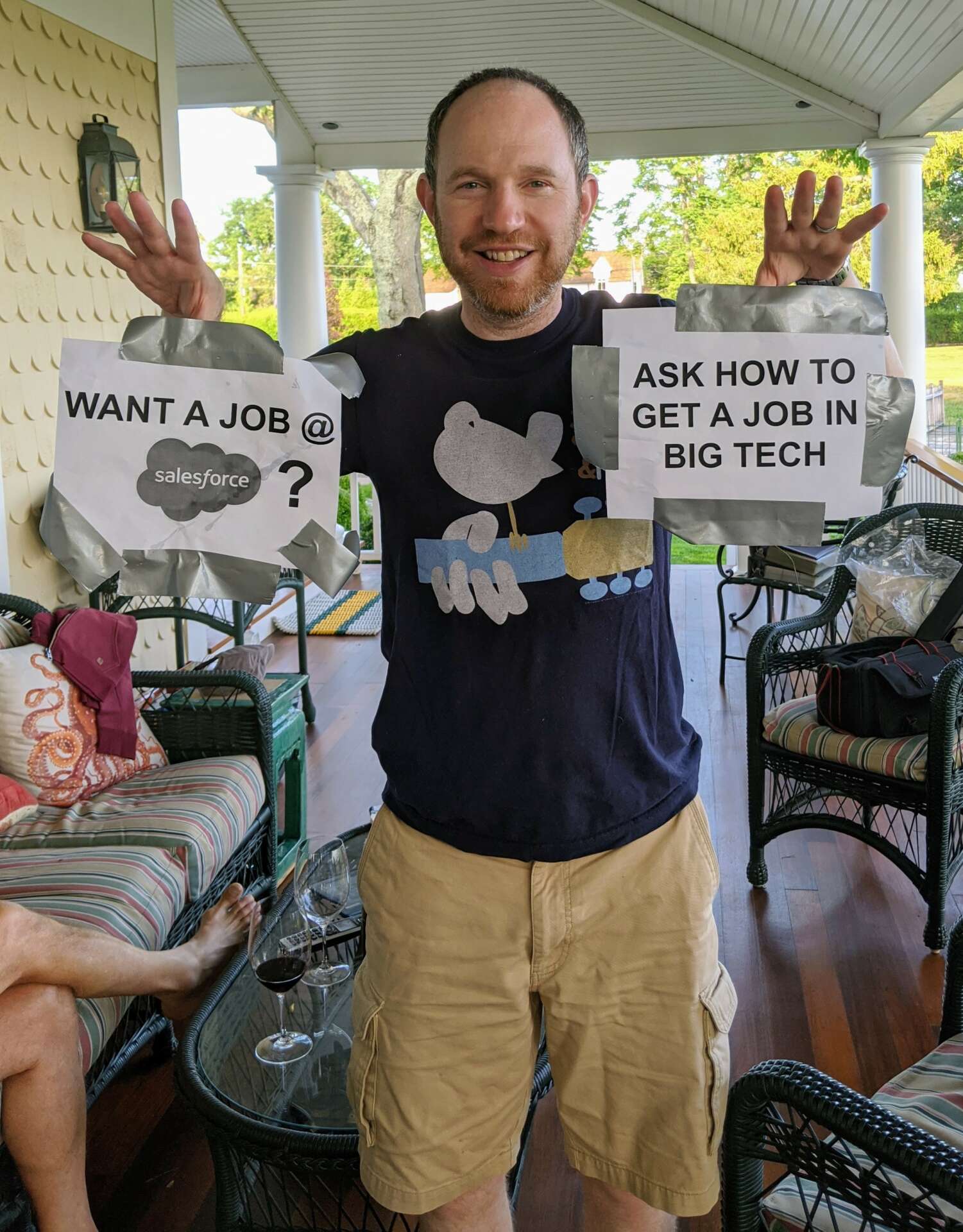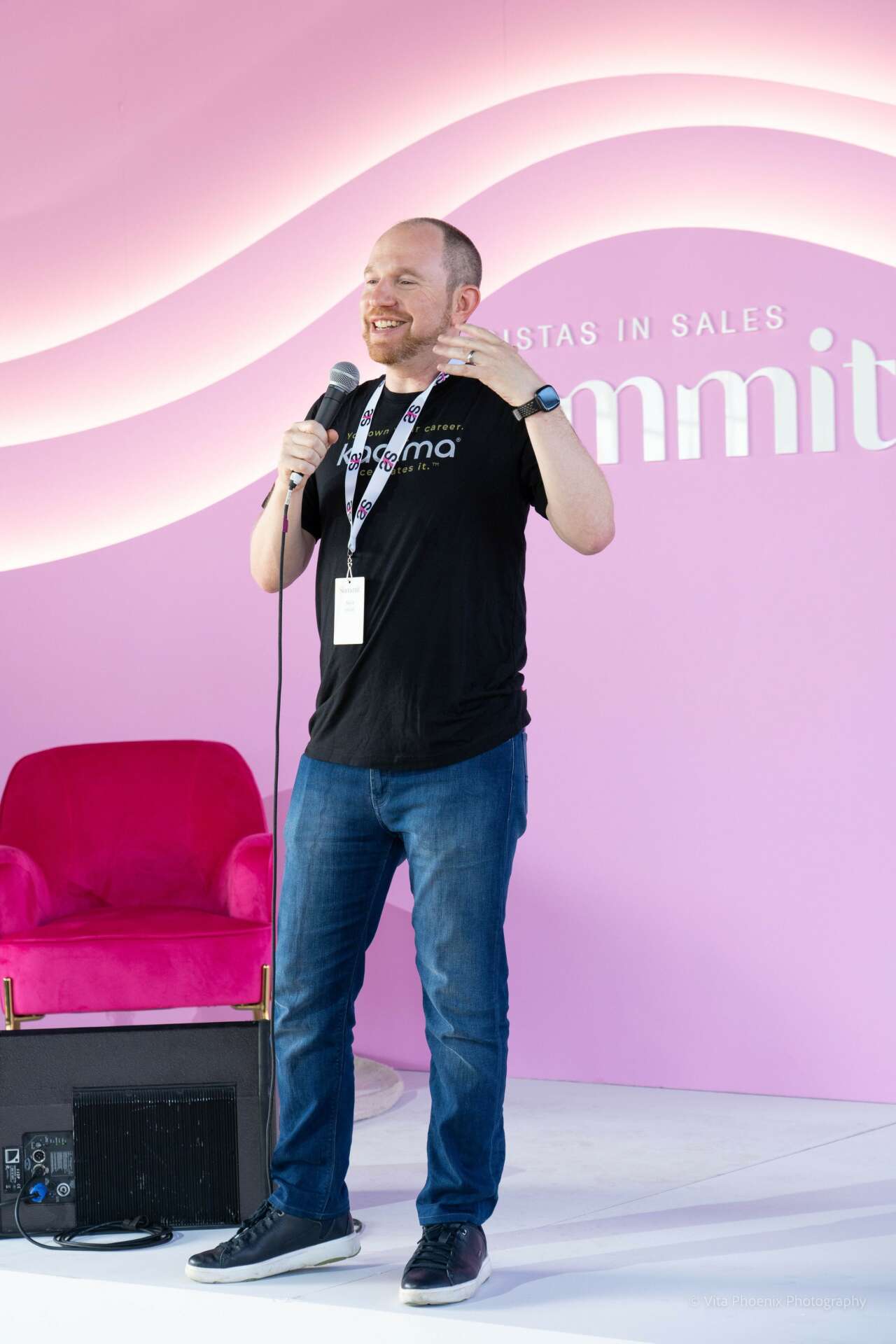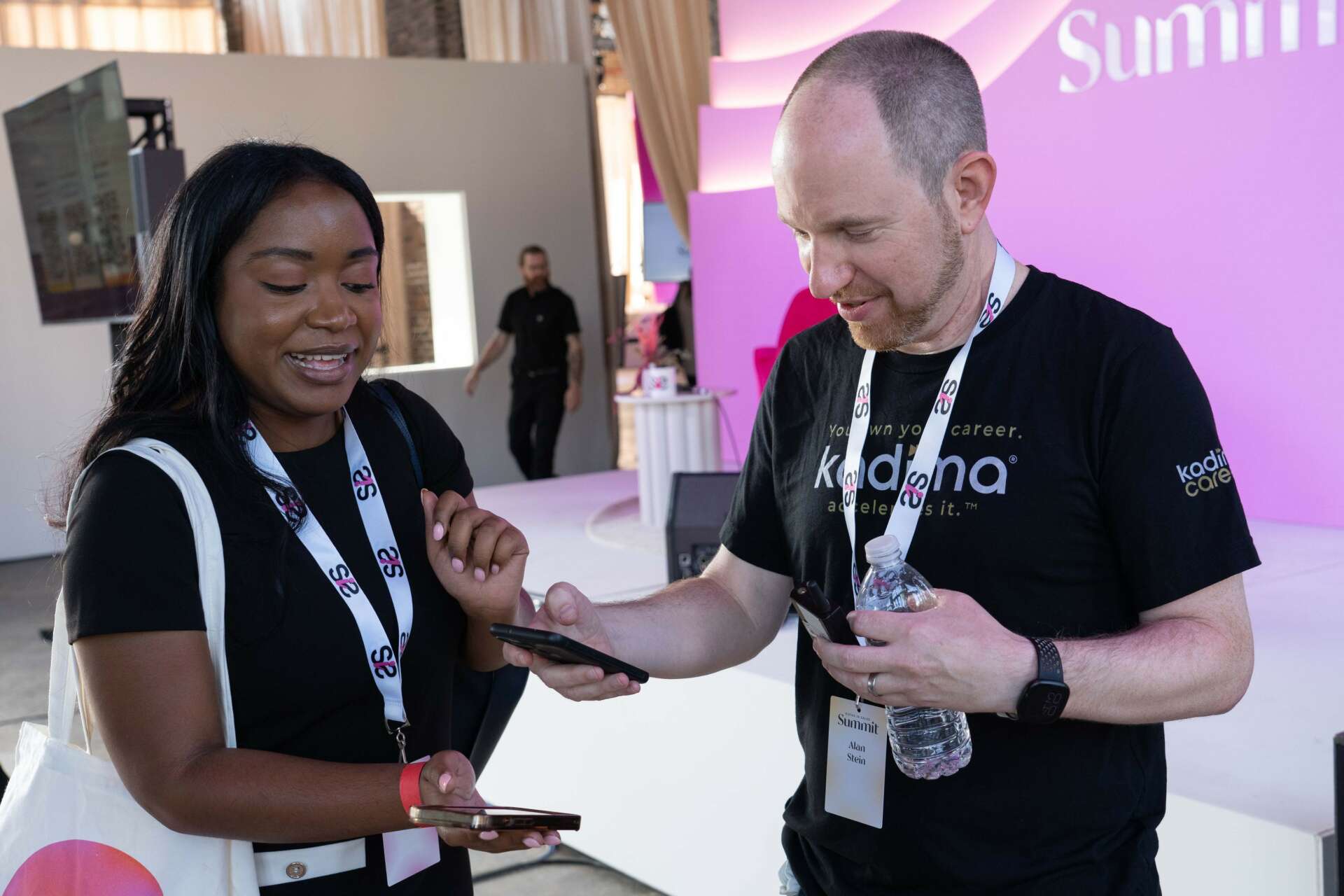Alright – so today we’ve got the honor of introducing you to Alan Stein. We think you’ll enjoy our conversation, we’ve shared it below.
Alan , appreciate you joining us today. Let’s kick things off with your mission – what is it and what’s the story behind why it’s your mission?
Kadima Careers’ overall mission is to level the playing field for underestimated talent and accelerate 1 million careers by 2040. It’s a meaningful mission to me because throughout my career trajectory–which included American Express, Meta (formerly Facebook), Google, Salesforce (formerly Tableau), etc., I was very focused on people. I was growing people — attracting and retaining talent — even though I worked in Customer Success, Operations, Finance and Marketing, I was always hiring people. I have managed people for the last 15 plus years and really enjoyed that aspect of my career journey.
When COVID hit, and also the George Floyd incident had occurred during June of 2020, I remembered how similar it was, in a lot of ways, to when I was at Google in 2012 when Trayvon Martin was murdered. There was a lot of talk and chatter at Google then about how Google has to do better and build more diversity within the walls of the company because this lightning rod event–Travyon’s murder–made Google more aware that things are not right from a bias and diversity perspective. Google did a lot of talk during that time but didn’t do as much walk.
Later, I saw the same thing happening when I was at Salesforce when George Floyd was murdered. Also, around that time, my wife and I were of course, at home, dealing with COVID. One of the things she did was read books to the kids nightly and one of the books that she read was by Ibram X. Kendi’s book, How To Be An Antiracist. He talks a lot about how it’s not good enough that you’re just not a racist but you need to take anti-racist actions so I began to think about ways that I could make an impact on building truly diverse teams in the world. I had done it a number of times while I was at Facebook and Salesforce: focused on building diverse teams so, because of this, I started to focus more on coaching underrepresented, underestimated, and underpaid talent and help them get into Big Tech companies. I, of course, also help white men out—what I call “white dudes”–but I try to focus my efforts on people of color, women, differently abled, military vets–all these underrepresented groups that all these Big Tech companies talk about recruiting and hiring in order to build diversity.

Alan , love having you share your insights with us. Before we ask you more questions, maybe you can take a moment to introduce yourself to our readers who might have missed our earlier conversations?
Before the pandemic in 2020, I had a very diverse career: after college, I thought I was going to be a PhD in clinical psychology and become a doctor. I got into a PhD program but, after one semester I dropped out. Then I was torn between following my passion for sports–I almost took a job at the NBA–but instead, I took a job on Wall Street as an equity analyst because my parents were telling me this would be a path to more money and I agreed. I also thought that I probably would learn more than at the NBA. I worked on Wall Street as an equity analyst for 2 ½ years and then, through a serendipitous encounter, I got an opportunity to work at a VC firm and I worked at BEV Capital for 2 ½ years. Eventually, I got fired from there because of performance and also because I was, frankly, not that interested; I was more interested in sports analytics. The book “Moneyball” came out about Billy Beane and I read that book and I said: “I want to be Billy Beane! (then the General Manager of the Oakland A’s)” so I networked my way into baseball and I worked for the New York Mets Minor League affiliate and the Toronto Blue Jays Minor League affiliate as a Director of Promotions in the front office (not doing the analytics that I wanted to do). I also realized the work-life balance was poor so I went back to school–Columbia Business School.
After graduating in 2005, I took a job at American Express and I was there for five+ years but I was not happy with the pay or the trajectory, so I put my sights on the high growth tech sector. After five rejections from Google, I eventually got an interview at the company through networking. At Google, 11 interviews later and being considered for two different roles on a parallel track, I got a job at Google and was there for 5 ½ years. Then, my Google career came to a sudden end. To make a long story short, I had made a mistake, admitted to it, and apologized about it but that didn’t matter and I still got fired. Afterwards, I worked at a couple of different startups, including Datadog as a contractor and I became VP of Operations at Andela reporting directly to the COO. I quickly realized that startups are often not all that attractive compared to working at a Big Tech company, so I went back to Big Tech and worked at Facebook. I was hired as the Director of Data Management Operations and thrived until the political tides turned, making my job no longer secure. The boss who hired me at Facebook got fired for poorly decided actions, and the new boss I inherited had ideas for someone else to be in my role. My exit path was essentially written when the boss who hired me was jettisoned from Facebook.
That former Facebook boss left to go to Tableau and he quickly recruited me to his team. When I joined Tableau, I expected it would get acquired within a couple of years. Little did I know it would be so much quicker. Within two months of joining Tableau, we were acquired by Salesforce and my next corporate chapter began. At Salesforce, I was very focused on building a diverse team and growing the people that I was working with. Specifically, I started this coaching business in 2020 as a side hustle, when I was still at Salesforce. When Kadima started to grow, I left Salesforce in September of 2021 on the first day of Fall–I call this “The Fall of Al”–and I went all in on Kadima!
I think I am able to help underrepresented groups get great jobs because I have an unique insight gained from having interviewed a thousand people during my career, including about 500 people while at Google alone (where I was recognized as Manager of the Year). In addition, I’ve also been interviewed for different roles at hundreds of different companies probably a thousand plus times myself, so I’ve seen both sides of the equation: I’ve been both on the hiring and decision-making side and I’ve been on the offer and negotiation side which gives me greater knowledge and enables me to tackle Kadima Careers’ mission to accelerate one million careers by 2040. Throughout my nearly three decades in business, I navigated through five layoffs without setbacks, consistently securing new positions faster than the average professional. I truly understand the challenges individuals face and possess the insight and expertise to help others overcome the same hurdles effectively. I firmly believe that taking ownership of one’s career is a crucial skill that can be taught through a well-designed curriculum. Kadima’s range of career coaching products and services is extensive–from an affordable, online, digital course to very personalized one-to-one coaching with me as well as other alternatives in between (including group coaching).
As a former Big Tech employee, I like to track metrics at Kadima and know that, on average, it takes us about 3.56 months to get someone a great job earning about $127,000 more in annual salary. By leveraging our expertise, we have consistently achieved remarkable results for our clients. More than half of our clients secure a new job within just 6 months of partnering with us, experiencing a significant boost in their career trajectory. Not only do we assist in securing initial offers, but we also excel at negotiating beyond that stage, leading to substantial first-year incremental total compensation for our clients. While our impact extends far beyond year one, we specifically focus on this period, ensuring our clients receive immediate tangible benefits.

Have any books or other resources had a big impact on you?
Lots of books have influenced me but the biggest one that probably did the most is by Dr. Robert Cialdini. Robert Cialdini is a psychologist who wrote this book called “Influence” about the seven factors of influence and it really breaks down how imperfect the world is and how influenceable it is. It outlines how you can use those same powers of influence, whether it be for marketing or in politics (unfortunately, sometimes people do so in evil ways) but also in the job search. So that book was very influential to me and I actually heeded a lot of his advice and what Robert had done before he wrote the book: he actually took jobs as a used car salesman and at a call center, I believe, in order to learn. Before I started Kadima Careers, I already had a lot of experience in interviewing, but I kept taking more and more interview calls as a candidate just to understand the art and science behind the interview process and the career journey. This has enabled me to better help my clients, so that book, “Influence” by Dr. Robert Cialdini, is one of the books that has had a very significant impact on me.

Alright – let’s talk about marketing or sales – do you have any fun stories about a risk you’ve taken or something else exciting on the sales and marketing side?
My Manager of External Communications & PR (Mary Reilly) and others on my team at Kadima, talk a lot about my authenticity, sense of humor, and humility. I say what I am thinking and feeling in a pretty genuine way with not much of a filter. I don’t tolerate hypocrisy or nonsense very well and am a down-to-earth guy. I have gotten to speak at some pretty big events that you wouldn’t normally expect a “white dude” to be on the stage at! For instance, I spoke at “Sistas In Sales” where I introduced myself using a word that I became familiar with from watching The Jeffersons sitcom TV show in the 1970s growing up as a kid. Remember when George Jefferson would call Archie Bunker a honky? So I introduced myself as a honky on the stage and people laughed and I think they enjoyed that: that I had introduced myself as probably the one and only honky in the room. I, of course, referred to the Jeffersons show and that the word doesn’t have the best connotation if you look at how it was derived — it’s kind of racy. So, I called myself a honky in front of about 100 black women at the “Sistas in Sales” conference in Queens last year and I think that was probably a risky thing to do–marketing wise–but I was just being me. And having some fun!

Contact Info:
- Website: https://kadimacareers.com/
- Instagram: https://www.instagram.com/kadimacareers/
- Linkedin: https://www.linkedin.com/in/alanjstein/ AND https://www.linkedin.com/company/kadimacareers/
- Twitter: @kadimacareers
- Youtube: https://www.youtube.com/channel/UCN_kDPq7iNPAfjPZMj10STg
- Other: https://www.tiktok.com/@alanjstein?lang=en


